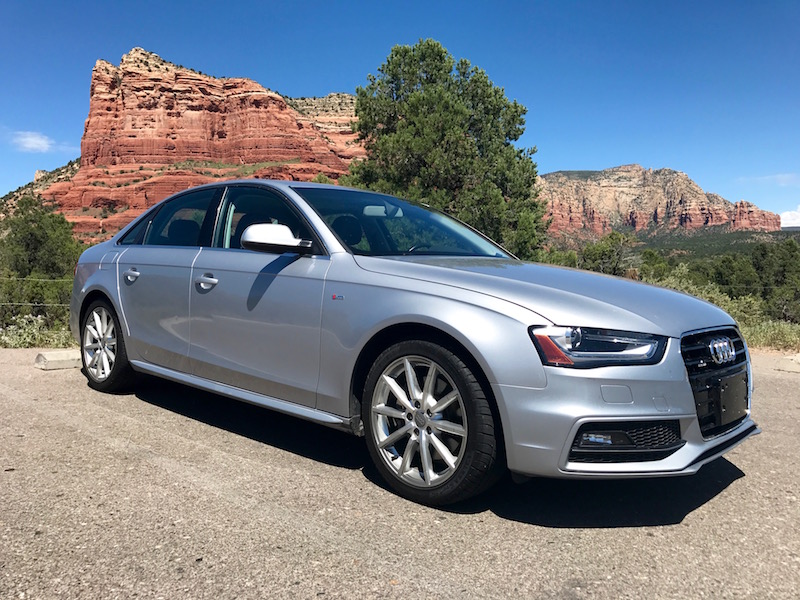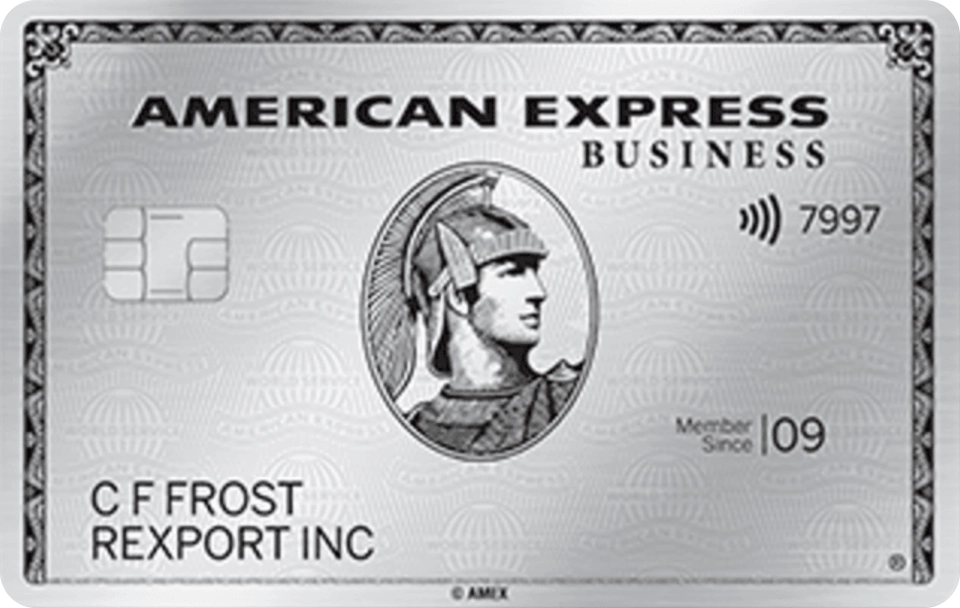Credit Card Travel Insurance In Canada Introduction
Credit card travel insurance in Canada. What a horrible, but necessary, conversation. My attitude on insurance is simple: I get it for things that matter, and really hope I never have to use it. It seems like every aspect of life comes with the chance to insure against every peril imaginable. I recently purchased some furniture and the sales associated offered purchase protection (which I declined by the way). She warned of a scenario where I sat down on my new sofa with a pen sticking out of my pocket and I puncture the upholstery, forever ruining my new investment. What a scary, horrible and unrealistic scenario.
Even more recently, I purchased a new car. During the dreaded closing ceremony, the business manager offered an extended warranty that seemingly covered everything, from blown out tires to keys that go through the dishwasher. However, I rarely keep vehicles beyond the factory warranty period, so again, this was an easy one to decline.
Two places I don’t mess around though. Home and travel. Last year I watched my neighbouring apartment building burn down two weeks before Christmas. That was frightening to say the least, and I will never complain about paying my home insurance premiums as long as I remember that day.
Travel insurance is equally important, and unfortunately something many younger travellers don’t think about. We’ve all heard the stories of the naive Canadian going to Seattle for the day, only to get struck by a terrible accident and hospitalized. Without travel insurance, the poor Canadian is stuck with all the medical bills, which can easily be hundreds of thousands of dollars, depending on the severity of the accident. I’ve heard personal accounts of people who’ve been in mild accidents only to drive home in excruciating pain to avoid medical services while being uninsured out of the country.
While I hope I never have to make a serious claim, travel insurance premiums are a small price to pay for a lot of assurance. Best of all, most premium credit cards in Canada offer varying degrees of insurance, and this post will discuss the different coverages to help you get the most coverage with little effort.
Credit Card Travel Insurance In Canada Categories
Credit card travel insurance in Canada can be a bit confusing. The difference between out of province/country medical coverage and emergency medical assistance is unclear, and the verbiage used in describing these coverages can be misleading. I once heard someone say that in order to fully understand travel insurance you would need to be a travel expert and lawyer, which I’ve come to agree with. Let me try to break down the differences from the travel experts perspective.
Out Of Province/Country Medical Insurance
By far the most important to have, out of province/country medical insurance is coverage for medical care in the event you need to seek services while abroad. This is far ranging, from diarrhea in Bali to a car accident in Seattle. Simply put, you do not want to find yourself sick or hurt outside of Canada without this insurance.
Most ‘premium’ credit cards in Canada offer out of country medical insurance, with varying restrictions on time spent out of country and coverage amount. You will want to look for this language (American Express in this example):
Provides coverage for eligible emergency medical expenses incurred while traveling outside your Canadian province or territory of residence, for the first 15 consecutive days of each trip, up to a maximum of $5,000,000 per insured person, for all insured persons under the age of 65
As opposed to this, which is only medical assistance in the case of emergency, and not full coverage:
Provides out-of-town emergency medical and legal referrals by telephone, 24 hours a day, 7 days a week
Some of my favourite cards in Canada with comprehensive medical coverage:
American Express Platinum Card
- $699 annual fee
- 15 days consecutive days coverage out of country (less than 65)
- 0 days coverage over 65
- $5,000,000 total coverage
American Express Gold Rewards Card
- $150 annual fee
- 15 days consecutive days coverage out of country (less than 65)
- 0 days coverage over 65
- $5,000,000 total coverage
TD Aeroplan Visa Infinite Card
- $120 annual fee
- 21 consecutive days coverage out of country (less than 65)
- 4 consecutive days coverage over 65
- $1,000,000 total coverage
Scotiabank American Express Gold Card
- $99 annual fee (frequent first year free offers)
- 25 consecutive days coverage out of country (less than 65)
- 10 days consecutive days coverage over 65
- $1,000,000 total coverage
- $120 annual fee (frequent first year free offers)
- 15 consecutive days coverage out of country (less than 65)
- 3 consecutive days coverage over 65
- Unlimited total coverage
Some of my favourite cards without travel medical insurance:
- American Express Business Gold Rewards Card
- American Express Starwood Preferred Guest Credit Card
- MBNA Alaska Airlines Mileage Plan Mastercard
Trip Cancellation Insurance
Though not quite as important as out of country medical insurance, trip cancellation benefits can be important for unexpected illness prior to a trip. It’s important to remember that trip cancellation only covers eligible scenarios, such as medical emergencies, and can’t be used in the event you change your travel plans voluntarily. Three of my favourite cards in Canada featuring trip cancellation are:
The American Express Platinum Card
- $2,500 per person, up to $5,000 per trip
The RBC Avion Visa Infinite Card
- $1,500 per person, up to $5,000 per trip
TD Aeroplan Visa Infinite Card
- $1,500 per person, up to $5,000 per trip
Scotiabank American Express Gold Card
- $2,500 per person, up to $10,000 per trip
The following is a list and explanation of the more basic and commonly included credit card travel insurance in Canada, along with a brief description of each coverage (I won’t go into detail on the coverage amounts and which cards have them, as most travel rewards cards feature all of the following benefits with similar coverage).
Trip Interruption Insurance
I often get asked what the difference between trip cancellation, trip interruption, and trip delay insurance is. On the surface, they all look and sound the same. However, it really comes down to where you’re at in your trip.
Trip cancellation – before your trip starts
Trip interruption – during your trip
Trip Delay – while in transit during your trip
Trip interruption offers similar coverage to trip cancellation in the event you are struck by illness during your trip, and covers the cost of tours, prepaid hotels, etc. It will also cover non-refundable costs in the event of other unlikely scenarios, such as an airline strike. Similar to trip cancellation, trip interruption will have limits per person and per trip, so check your travel insurance certificate carefully when planning your travels.
Trip Delay Insurance
Trip delay insurance covers any costs experienced during a delay while in transit. The most common scenario is a delayed flight where the airline is not legally required to provide accommodations. If this happens, you can call your credit card provider to open a claim, and the adjuster will usually be able to authorize a hotel stay over the phone. Alternatively, you could just charge the hotel room and any food expenses to your card and file a claim later, though you do risk having the claim denied if you didn’t read the fine print carefully. As an aside, airlines are generally required to provide accommodations for long delays that are their fault (mechanical issues, staff shortages) but not in the event of a weather delay (some airlines will depending on their customer service). Their contract of carriage is extremely complicated and insurance providers may deny coverage in the event delay expenses should have been covered by the airline.
If your flight is delayed or cancelled in Vancouver, as an example, you could find yourself with a free night at The Fairmont Vancouver Airport Hotel rather than sleeping on an uncomfortable airport floor.

Lost/Delayed Luggage
I’m never a fan of checking bags, but sometimes it’s unavoidable. If you’re going to, make sure you have extra insurance. Believe it or not, lost/delayed bags are actually quite rare, as airlines have developed highly complex electronic tracking systems to ensure bags arrive safely and on time. That being said, there are still mishaps, and having a good travel rewards card could help in the unlikely event your bags get misplaced or delayed.
Coverage is standard on most travel reward cards and ranges from $500-$1,000 per incident. In the event your bag is delayed at your arrival point, contact your credit card company to authorize the replacement of essential items. It should be noted that just essentials are covered in the event of a delay, and you shouldn’t abuse the benefit. If, for example, your baggage gets delayed on the way to Hawaii and you take the opportunity to purchase a few sweaters and a pair of jeans, your claim will likely be denied. If, however, you buy a new swimsuit, sandals and sunblock, you’re not going to get any trouble from the adjuster.
In the very unlikely event, your bag gets lost completely, you should be able to file a separate claim for whatever the difference was between your delay expenses and coverage limit. Credit card travel insurance in Canada will cover up to a certain amount, but obviously, most people travel with more than $500 – $1,000 worth of items. Don’t forget to file a claim with the airline for anything not covered by your credit card travel insurance in Canada
Car Rental Insurance
Anyone who has rented a car knows how painful the process can be. First, you find a great deal online for $29 dollars a day, and then get gouged at the rental office for everything imaginable. The rental agent will tell you horror stories of uninsured drivers, rock chips, fires, theft, alien invasion, etc. You end up buying all the coverage and end up paying double or triple what you expected to pay for your rental.
The two main insurances to consider when renting a car are for loss and liability. Most premium credit cards will cover the loss portion in the event the car is damaged or stolen. This coverage is usually expensive through the rental agency and will be completely covered up to a certain MSRP of the vehicle if you charge the rental in full to your travel rewards card. Note that ultra-luxury cars and exotic cars are generally excluded. Check the insurance certificate to see the maximum MSRP and any exclusions.
The liability coverage is different, but can usually be covered cost-effectively through your own auto insurance. Liability is for the unlikely event you are in an at-fault accident and hurt someone else. In British Columbia, ICBC offers an optional RoadStar package which includes varying levels of liability coverage on rental cars. We highly recommend this option over paying the highly inflated costs at the rental counter.
On a recent trip to Sedona, our Audi A4 through Silvercar was completely covered by using our American Express Platinum Card for the rental and ensuring we had optional coverage through our regular auto insurance back home.

Travel Accident Insurance
Nobody wants to think about losing an eye or dying while on vacation, but it happens. Travel accident insurance provides coverage for death or dismemberment during transit on any common carrier (plane, train, bus, ship) up to $500,000. Travel accident insurance is standard on most travel reward credit cards in Canada.
Credit Card Travel Insurance In Canada Considerations
Like most policies, credit card travel insurance in Canada can be convoluted, confusing, misleading, and frustrating. It’s no wonder so many people travel uninsured or underinsured – they just don’t understand the legalese littered throughout their insurance certificate.
My recommendations to all travellers – take a good long look at your certificate of insurance that comes with your travel rewards card. While small claims are usually fairly painless, insurance is a big, profitable industry, and you can guarantee some resistance when it comes to submitting a large loss. While different cards have different benefits/maximums/time limits, most of them use the same language in their policies. If you take the time to understand one, you will be better equipped in the unfortunate event you need to submit a claim. I do want to point out some common trends that will likely be applicable to your insurance coverage (again, please get familiar with your own coverage):
- For most coverage, the full travel cost needs to be charged to the credit card. For example, if you are flying to Hawaii and your trip is delayed 5 hours, you will likely be eligible for bag delay insurance if you charged the full cost of your plane ticket to your credit card
- Travel medical insurance is provided for being a cardmember, and you do not need to charge the travel costs to the card to be eligible for medical benefits
- Reward travel can be very tricky since technically the full cost of travel is not being charged to the card, only the taxes and fees. For Canadians, the CIBC and TD Aeroplan Visa cards provide common trip insurance for Aeroplan award redemptions when the taxes and fees are charged to the card. American Express does not provide coverage on award travel (except medical coverage).
- While most premium credit cards offer a comprehensive package of travel coverage, be sure to check age restrictions, number of consecutive days covered, and claim limits to make sure they are valid for your specific travel plans
- Credit card travel insurance in Canada usually covers the primary cardmember, and any spouse or dependents travelling with the insured cardmember. Check your certificate of insurance for coverage details or age restrictions
- If you have any pre-existing conditions or health concerns prior to travel, you can expect a headache in the event of a claim. Be honest during any questionnaires or claim submissions as the adjusters will go through great lengths to deny a claim. If you are in poor health or have any pre-existing conditions, I highly recommend speaking to a qualified insurance broker before travelling
Credit Card Insurance In Canada Bottom Line
Really simple – don’t travel uninsured. Even if you’re only an amateur travel hacker, you should have sufficient coverage to travel the globe with fairly comprehensive coverage. However, credit card insurance in Canada varies between card providers, so take the time to look over your certificates prior to any trips to ensure you have the right coverage for your needs.
Have you ever used your credit card travel insurance in Canada? Tell us about your experience in the comment section below!


So given we like to travel free on points in this game, are there any cdn credit cards that cover rewards bookings other than Aeroplan? Thanks!